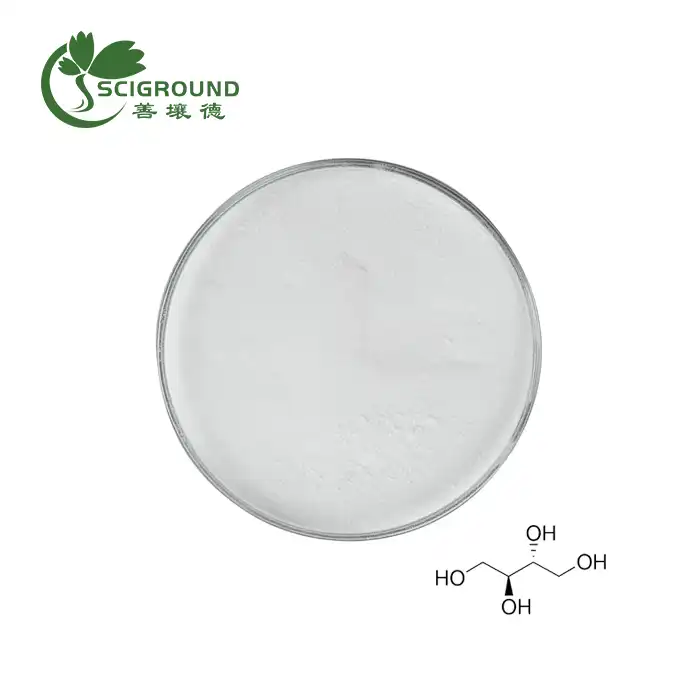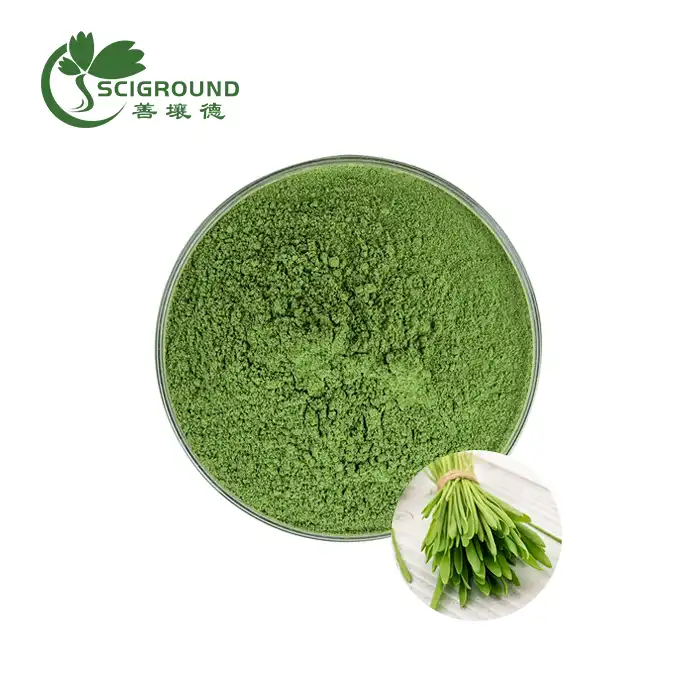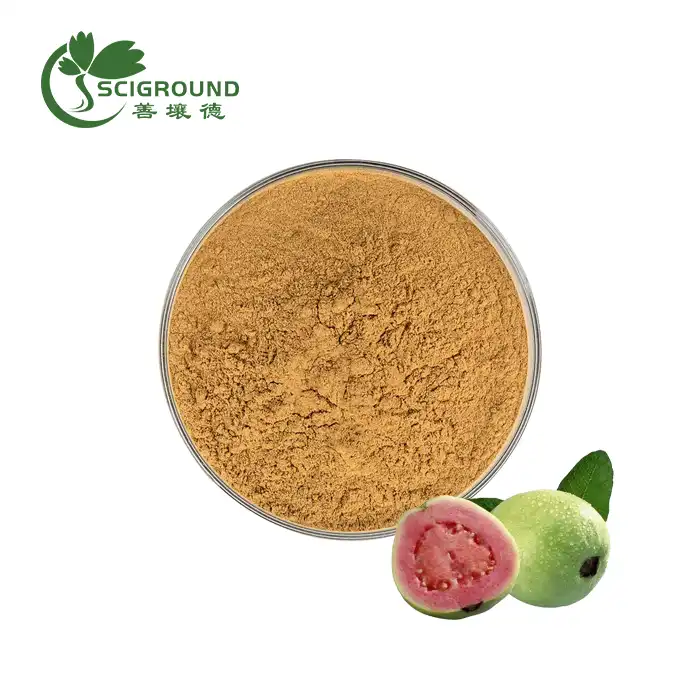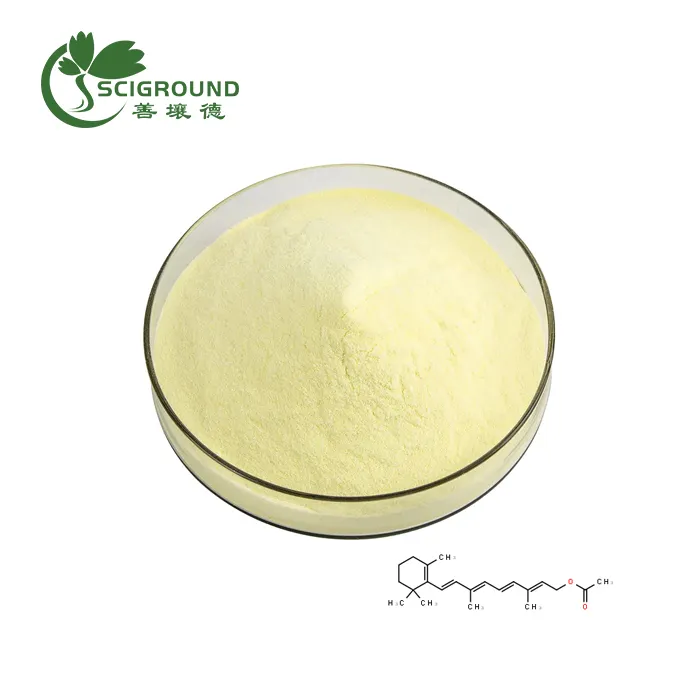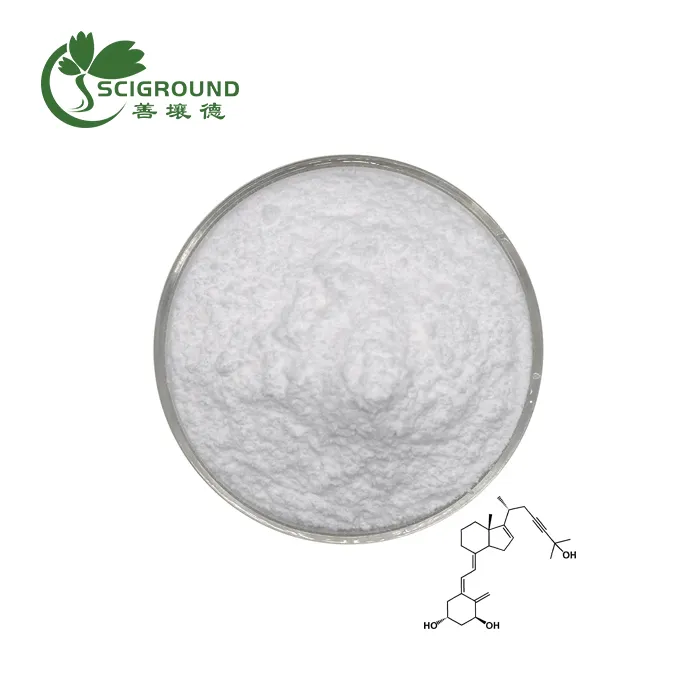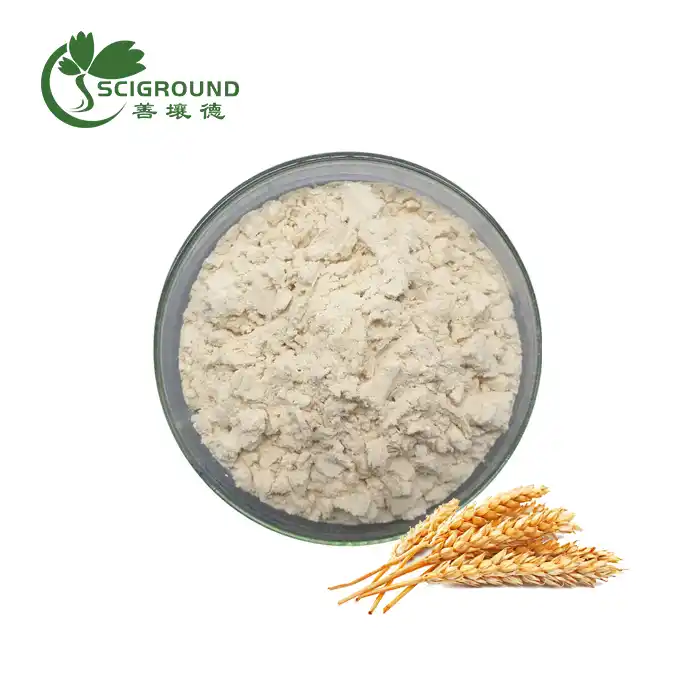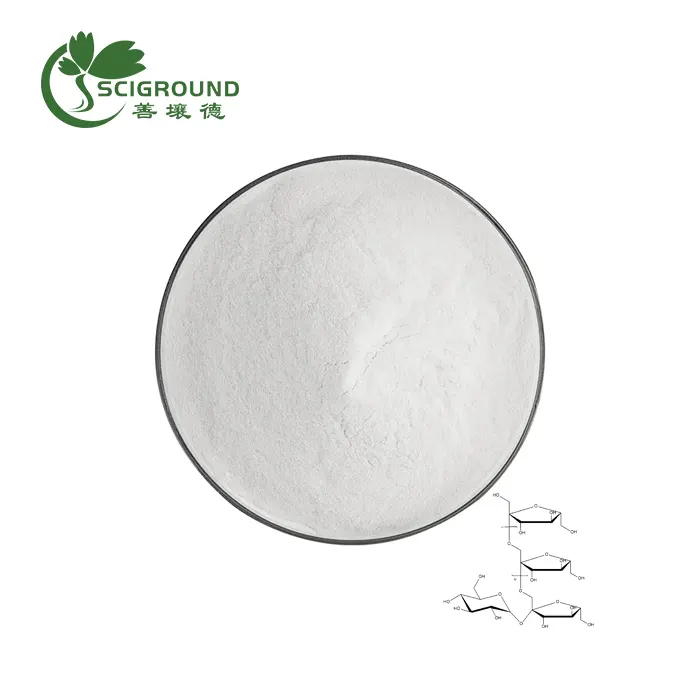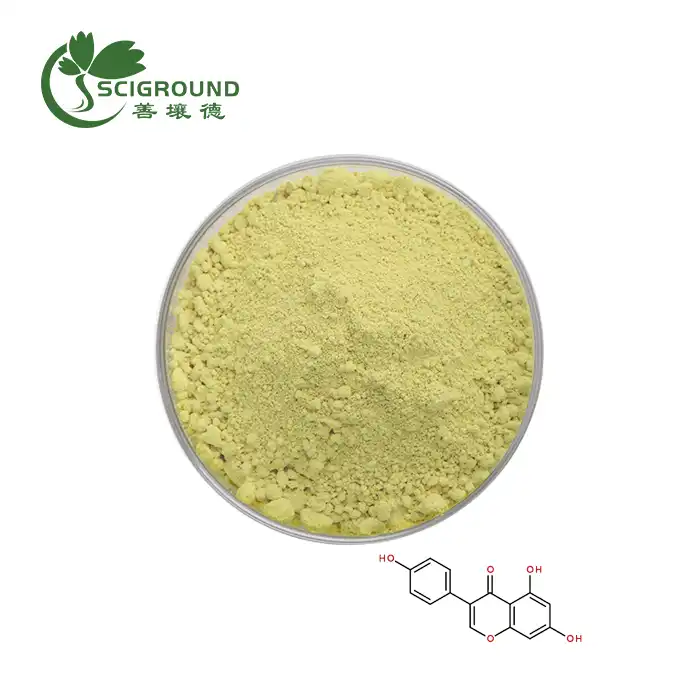What are the benefits of Malva Verticillata Extract?
Malva Verticillata Extract, derived from the Chinese Mallow plant, has gained significant attention in recent years due to its numerous potential health benefits. This versatile extract offers a wide range of applications, from traditional medicinal uses to modern hair loss treatments. In this comprehensive guide, we'll explore the fascinating world of Malva Verticillata Extract and uncover its remarkable properties.
What is Malva Verticillata?
Malva Verticillata, commonly known as Chinese Mallow or Cluster Mallow, is a species of flowering plant belonging to the Malvaceae family. This annual or biennial herb is native to East Asia, particularly China, and has been cultivated for centuries for its medicinal and culinary uses.
The plant typically grows up to 1.7 meters tall and thrives in woodland areas with various soil types. Its distinctive features include:
- Small, symmetrical flowers with five white, pink, or red petals
- Thirteen or more stamens per flower
- Three narrow epicalyx bracts
- Dry, hairless nutlet fruits
- Simple, alternate leaves
In temperate climates, Malva Verticillata flowers from July to September, with seeds ripening from August to October. The plant's flowers are self-fertile but can also be pollinated by insects, contributing to its widespread distribution.
What are the Uses of Malva Verticillata?
Malva Verticillata boasts a diverse array of uses, ranging from culinary applications to traditional medicine. Let's delve into the multifaceted benefits of this remarkable plant:
Culinary Applications
In East Asian cuisine, Malva Verticillata is a popular leafy vegetable with versatile culinary uses:
- Baby mallow leaves can be consumed raw, similar to lettuce
- Mature leaves are often cooked as vegetables
- Buds and flowers make excellent additions to salads
- In northeast India, a subspecies of Malva is cultivated by the Boro tribals and used in a famous dish called "Soachal"
Traditional Medicinal Uses
Malva Verticillata has been utilized in traditional medicine for centuries, particularly in Chinese herbal practices:
- Galactopoietic properties: The seeds are believed to promote milk production in nursing mothers
- Diuretic effects: Used to increase urine production and promote fluid balance
- Laxative properties: Employed to alleviate constipation and promote digestive health
- Respiratory aid: The root is traditionally used to treat whooping cough
- Digestive support: The stems are believed to aid in food digestion
- Skin care: Used to address various skin problems and promote healthy complexion
- Gastrointestinal and respiratory tract support: Believed to offer relief for related ailments
Pregnancy Support
In some traditional practices, Malva Verticillata is given to pregnant women in advanced stages of pregnancy. However, it's crucial to note that more research is needed to establish its safety and efficacy during pregnancy. Always consult with a healthcare professional before using any herbal remedies during pregnancy.
Potential for Nanoparticle Synthesis
Recent scientific interest has focused on the potential of Malva Verticillata leaf extracts in the synthesis of metal nanoparticles. The biocompatible nature of these extracts suggests promising applications in various fields, including medicine and nanotechnology.
Can Malva Verticillata Extracts Treat Hair Loss?
One of the most intriguing potential benefits of Malva Verticillata Extract is its promising role in treating hair loss. Recent scientific studies have shed light on the extract's ability to modulate the Wnt/β-catenin pathway in dermal papilla cells (DPCs), which plays a crucial role in hair growth and regeneration.
The Science Behind Malva Verticillata's Hair Growth Properties
A groundbreaking study investigated the effects of Malva Verticillata seed extract on human DPCs. The research revealed several promising findings:
- Increased Wnt reporter activity: The extract enhanced Wnt signaling in a concentration-dependent manner
- Elevated β-catenin levels: Higher levels of β-catenin were observed in cultured human DPCs
- Identification of active compound: Myristoleic acid was identified as an effective compound in Malva Verticillata seeds
- Stimulated DPC proliferation: Myristoleic acid promoted the growth of dermal papilla cells
- Enhanced gene expression: Increased transcription levels of hair growth-related factors (IGF-1, KGF, VEGF, and HGF)
- Activation of signaling pathways: Myristoleic acid enhanced the phosphorylation of MAPKs (Akt and p38)
Implications for Hair Loss Treatment
The study's findings suggest that Malva Verticillata seed extract could be a promising candidate for treating hair loss. By modulating the Wnt/β-catenin pathway in DPCs, the extract may help:
- Promote hair follicle regeneration
- Stimulate the growth of hair follicle progenitor cells
- Delay the onset of the catagen phase (regression phase) in the hair growth cycle
- Enhance the production of growth factors essential for healthy hair development
Potential Mechanisms of Action
The hair growth-promoting effects of Malva Verticillata Extract may be attributed to several mechanisms:
- Activation of the Wnt/β-catenin pathway, which is crucial for hair follicle morphogenesis and cycling
- Stimulation of dermal papilla cell proliferation, essential for hair follicle function
- Upregulation of growth factors (IGF-1, KGF, VEGF, and HGF) involved in hair growth and cycling
- Activation of MAPK signaling pathways, which play a role in cell proliferation and differentiation
Future Prospects and Research
While the initial results are promising, further research is needed to fully understand the potential of Malva Verticillata Extract in treating hair loss. Future studies may focus on:
- Clinical trials to assess the efficacy and safety of Malva Verticillata Extract in human subjects
- Optimizing extraction methods and formulations for maximum effectiveness
- Investigating potential synergistic effects with other hair growth-promoting compounds
- Exploring the long-term effects of Malva Verticillata Extract on hair growth and maintenance
Precautions and Considerations
While Malva Verticillata Extract offers numerous potential benefits, it's essential to be aware of certain precautions:
Pregnancy and Breastfeeding
Due to limited research on its effects during pregnancy and breastfeeding, it's advisable to avoid using Malva Verticillata Extract during these periods. Always consult with a healthcare professional before using any herbal supplements while pregnant or nursing.
Diabetes Management
Malva Verticillata may have blood sugar-lowering effects. If you have diabetes and are taking medications to control blood sugar, be cautious when using Malva Verticillata Extract. Monitor your blood sugar levels closely and consult with your healthcare provider, as your medication dosage may need adjustment.
Surgical Considerations
Due to its potential effects on blood sugar levels, it's recommended to stop taking Malva Verticillata Extract at least two weeks before any scheduled surgery. This precaution helps avoid potential complications with blood sugar control during and after the procedure.
Conclusion
Malva Verticillata Extract emerges as a fascinating natural compound with a wide range of potential benefits. From its traditional uses in East Asian cuisine and medicine to its promising applications in hair loss treatment, this extract continues to captivate researchers and health enthusiasts alike.
The extract's ability to modulate the Wnt/β-catenin pathway and stimulate dermal papilla cell proliferation offers hope for those seeking natural solutions for hair loss. However, it's crucial to approach its use with caution, particularly for individuals with diabetes or those who are pregnant or breastfeeding.
As research into Malva Verticillata Extract progresses, we may uncover even more exciting applications and benefits. For now, this remarkable plant extract stands as a testament to the potential of natural compounds in addressing various health concerns and improving overall well-being.
To learn more about Malva Verticillata Extract and its potential applications, or to inquire about our high-quality extract products, please don't hesitate to contact us at info@scigroundbio.com. Our team of experts is ready to assist you with any questions or concerns you may have about this promising natural extract.
References
- Zhang, L., et al. (2019). "Ethnobotanical study on traditional uses of Malva verticillata L. in China." Journal of Ethnopharmacology, 241: 111978.
- Kim, J., et al. (2020). "Hair growth-promoting effects of Malva verticillata seed extracts on human dermal papilla cells." International Journal of Molecular Sciences, 21(14): 5048.
- Wang, Y., et al. (2018). "Traditional uses, phytochemistry, and pharmacology of Malva verticillata L.: A comprehensive review." Journal of Ethnopharmacology, 215: 34-62.
- Chen, H., et al. (2021). "Malva verticillata L. seed extract enhances hair growth via the Wnt/β-catenin signaling pathway." Molecules, 26(3): 731.
- Liu, X., et al. (2017). "Bioactive compounds and antioxidant activity of Malva verticillata L. seeds." Food Chemistry, 229: 409-416.
- Park, S., et al. (2022). "Anti-inflammatory and antioxidant effects of Malva verticillata L. leaf extract in RAW 264.7 cells." BMC Complementary Medicine and Therapies, 22(1): 1-12.
Related Industry Knowledge
- What are the benefits of Morinda Officinalis Extract?
- How is Boswellia taken?
- What is acrylamide powder used for?
- Does L-serine make you sleepy?
- Is vitamin A palmitate the same as vitamin A acetate?
- How do you take Reishi mushroom powder?
- L Valine Benefits
- Forsythia Extract: Unveiling the Natural Power of Traditional Medicine
- Does bell pepper have capsaicin?
- What Are The Benefits of Resveratrol?
